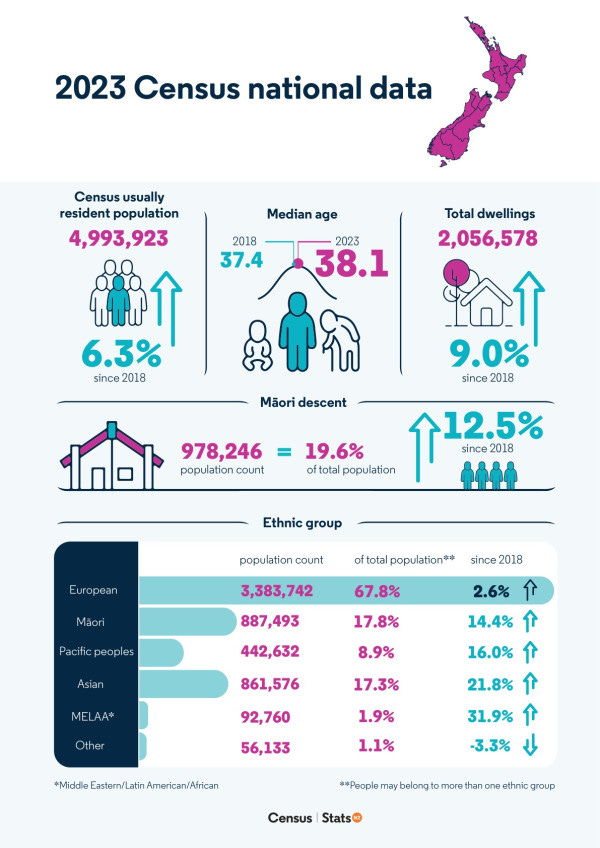The Numbers
How the Electoral Act complicates the Government's plan to be rid of the Census
The Government has announced its intention to cancel the 2028 census (and all future censuses) and move to a system of using government administrative in place of the data it had been collecting through the five-yearly census process. Some questions arise.
A couple of weeks ago, former Government Statistician Len Cook, writing at Newsroom, listed some of the concerns from the perspective of a statistician: not least that countries that are able to get the level of accuracy we need from a census without actually holding a census tend to have very different approaches to population registries of the type we do not have in New Zealand (and which are not proposed).
How confident we can be that the census alternative proposed by Statistics New Zealand will achieve the type of data we need from a census with the level of confidence we expect from a census, is well beyond my expertise. I tend to support Cook’s view that there ought to be an independent assessment of the likely success of the government’s move, but really have to leave opining on that to others.
There is a part of this proposal that I don’t think I have seen discussed however, which is well within my area of expertise. The census not only provides data to allow the government to make informed decisions, it is also important to elections, and to election law. Because of this, the passage of any law to give effect to this government decision cancelling future censuses may not be smooth.
The census is the source of the data used to determine not only the number of electorates we have, but their boundaries. Mostly, this is again a question of confidence and accuracy, but there is an additional legal wrinkle: the existence of a periodic census is raised in the reserved sections of the Electoral Act. These are the provisions – sometimes called entrenched – that a simple majority alone in Parliament cannot change. Instead, either a referendum, or the support of at least 75% of MPs is needed.
This isn’t the only time a reserved provision has been implicated in a government policy decision.
The last Labour government introduced the Electoral (Māori Electoral Option) Legislation Bill, which would have allowed Māori to change electoral roll at any time, instead of once every five years after the census. The existence of Māori seats is recognised in the reserved provisions, as is the Māori option because it affects the number of general electorates, so changing the law around the Māori option, so there was no longer a single Māori option, but a continuous one, required amending a reserved section of the Electoral Act.
That Government Bill passed first reading, with National and Act opposed and came out of select committee with National and Act still opposed, but the Clerk of the House advised that the provisions amending the reserved provisions would need a supermajority at committee of the whole, and it was clear that the Government didn’t have the 75% it needed to get the change it wanted through.
This led to discussions between the Government and opposition and ultimately an agreement with some additional safeguards: allowing people to change roll type at any time, except in the three months before an election, or after a by-election had been called.
Although there seems to have long been a feeling that Statistics New Zealand wanted to replace the census with an administrative data first approach, and they seem to have convinced the Government, there has been no public indication that the Government has yet convinced the opposition Labour Party, whose votes the Government will be needed to actually pass a law replacing a census with data derived from non-census sources.
As with the Māori option, there is likely to be a deal to be made, but it would be good if the government could arrange this in sufficient time so that its law doesn’t need to go through all-stages urgency, which is what happened last time the government needed a law change cancelling a census (in that case, following the Christchurch Earthquake), and which I still think they might have stuffed up!
In the absence of agreement, what chance is there? Well, there are some suggestions in the background papers released by Statistics New Zealand, that they think a census of administrative data might count as the type of census required by the Data and Statistics Act and the Electoral Act, but that strikes me as a risky legal argument. While the Government Statistician has leeway in the the sources and manner of collecting statistics generally, the existence of a census (with certain requirements around collecting date from the public) is mandated by statute.


